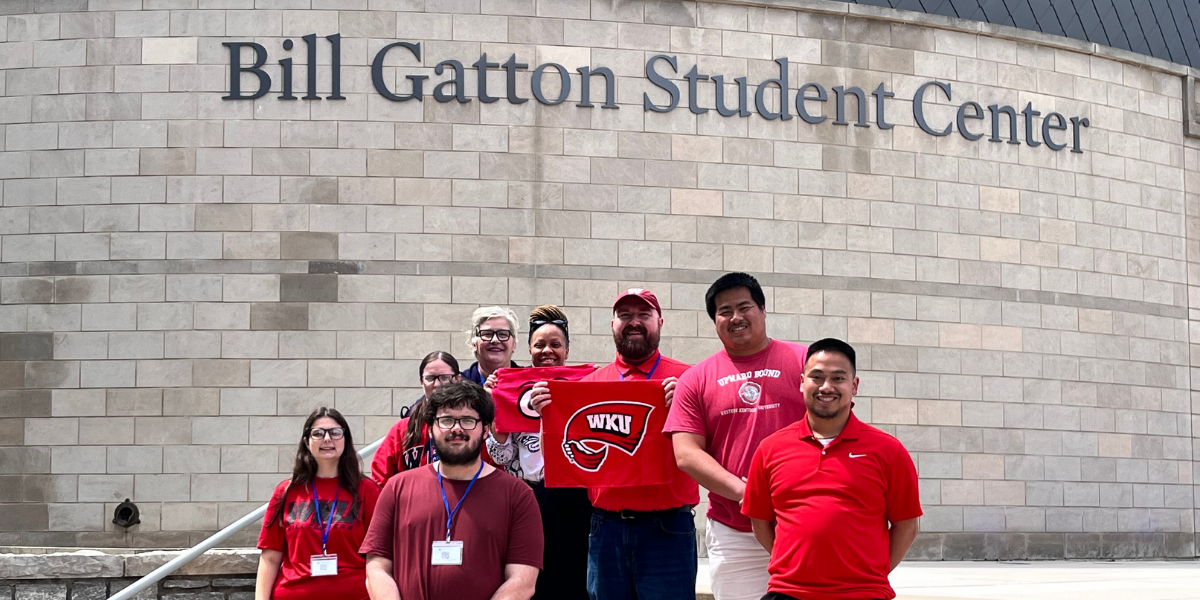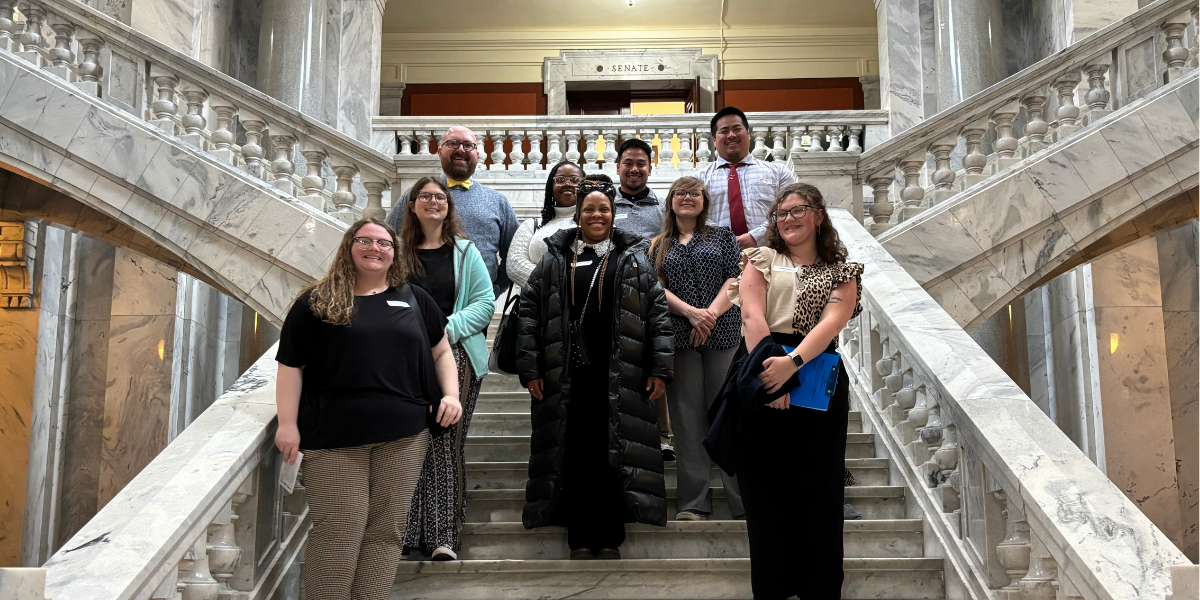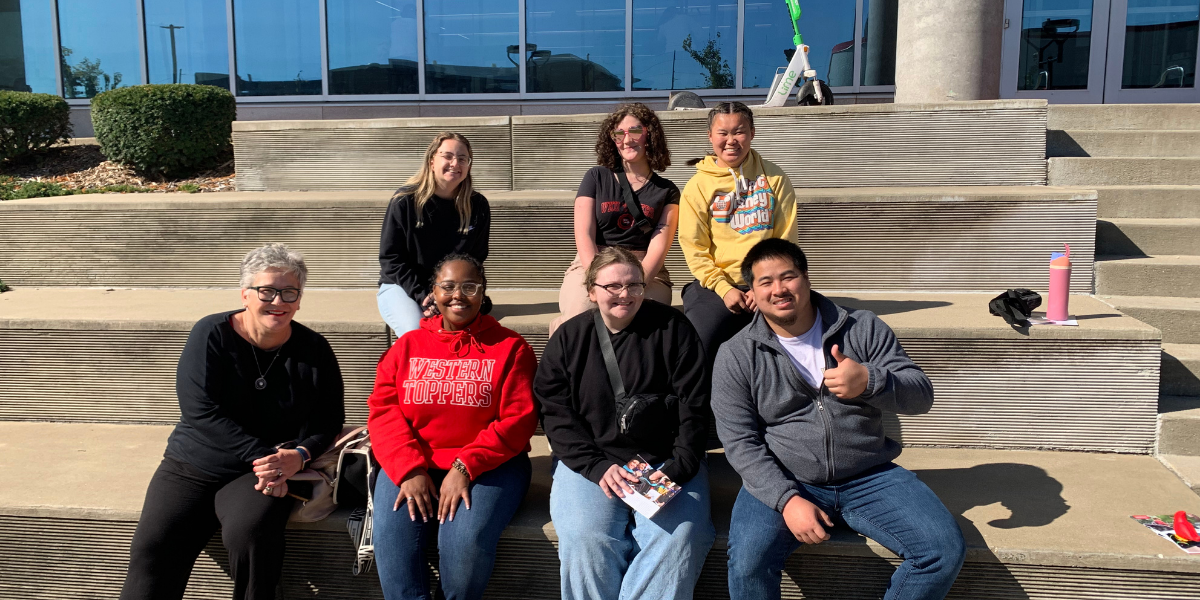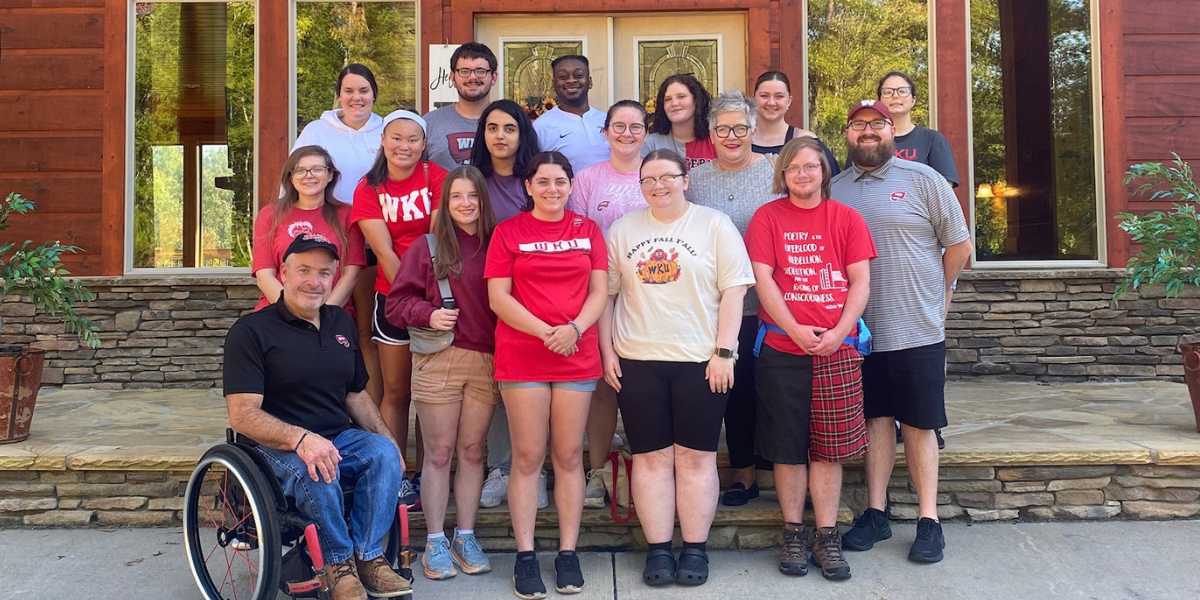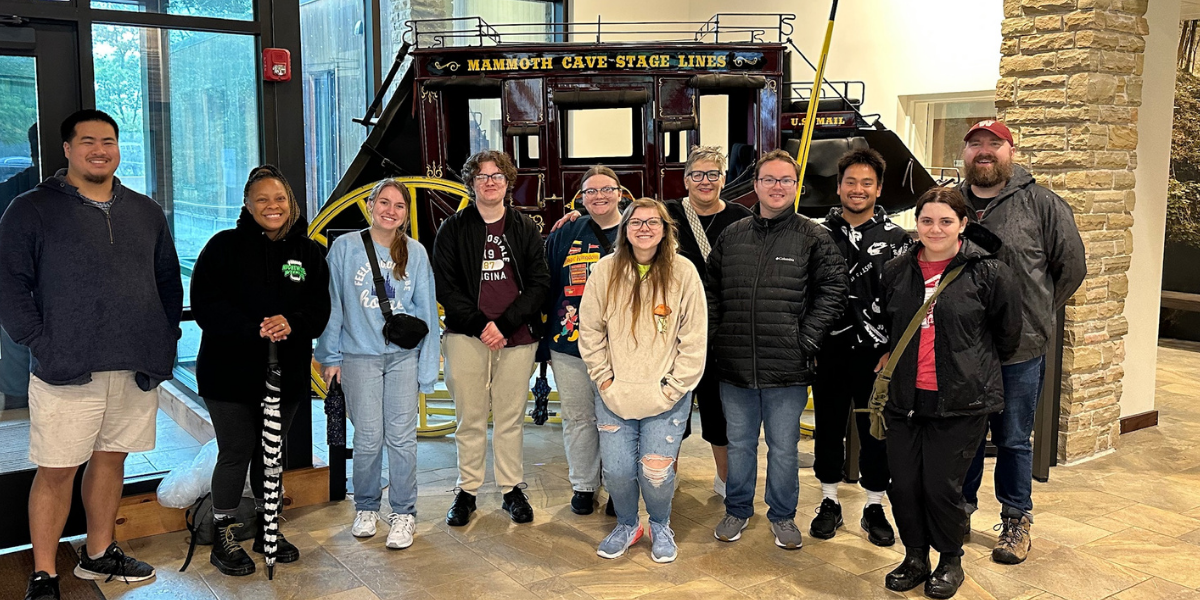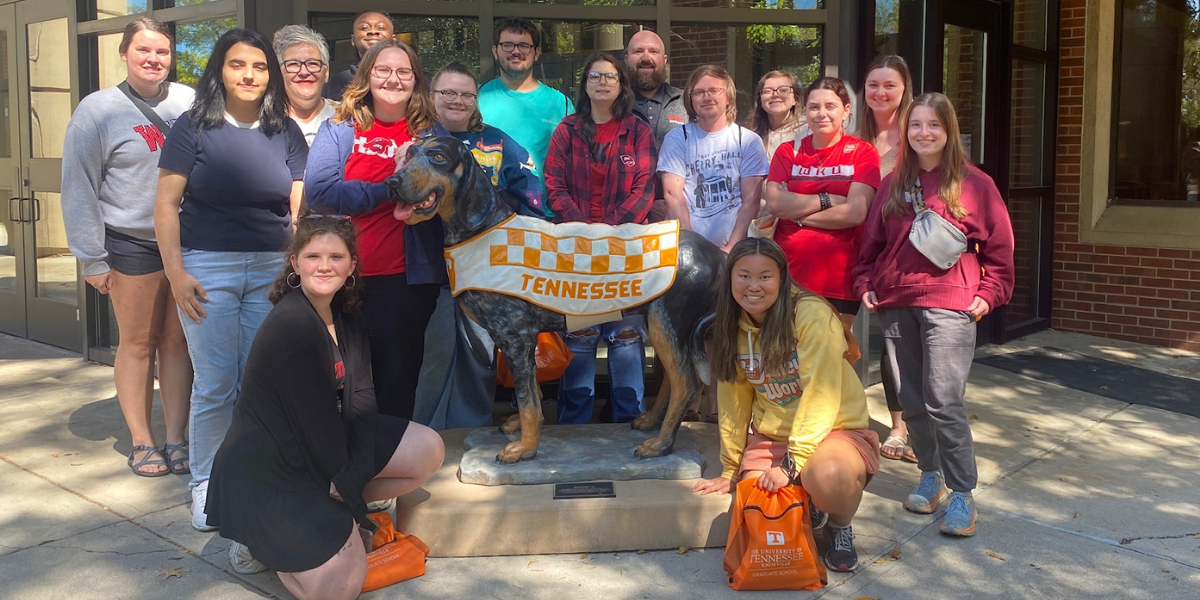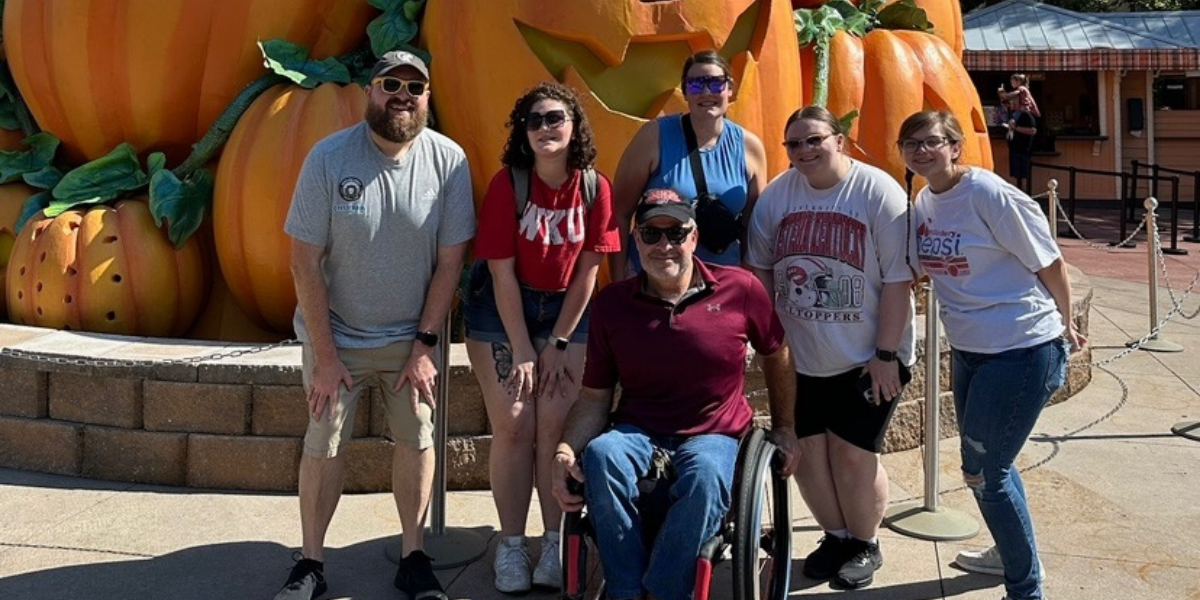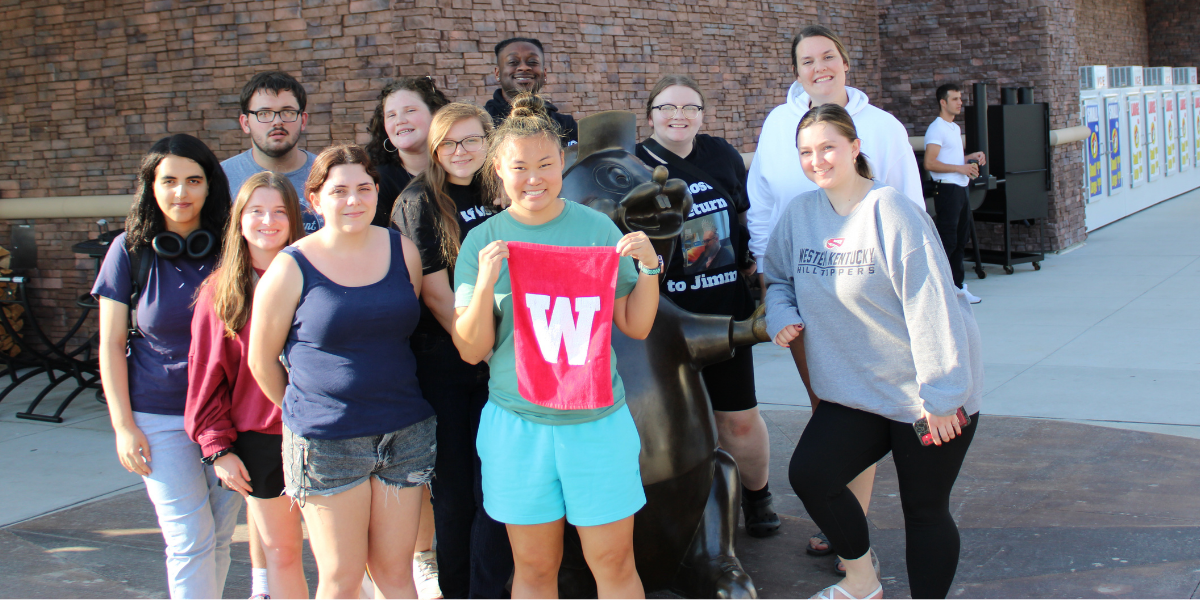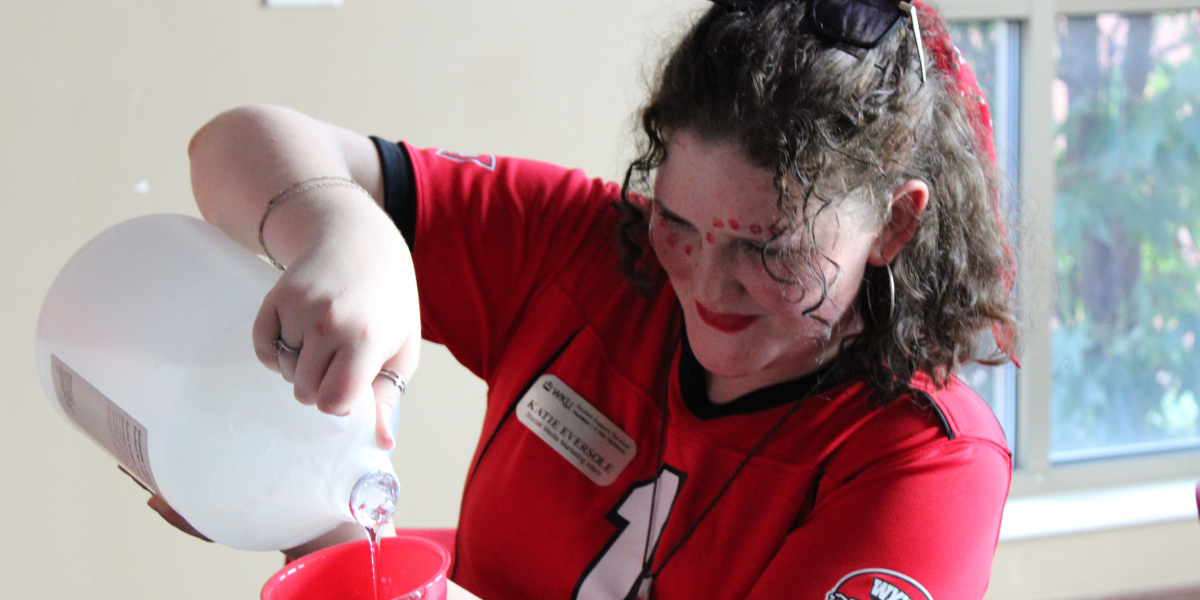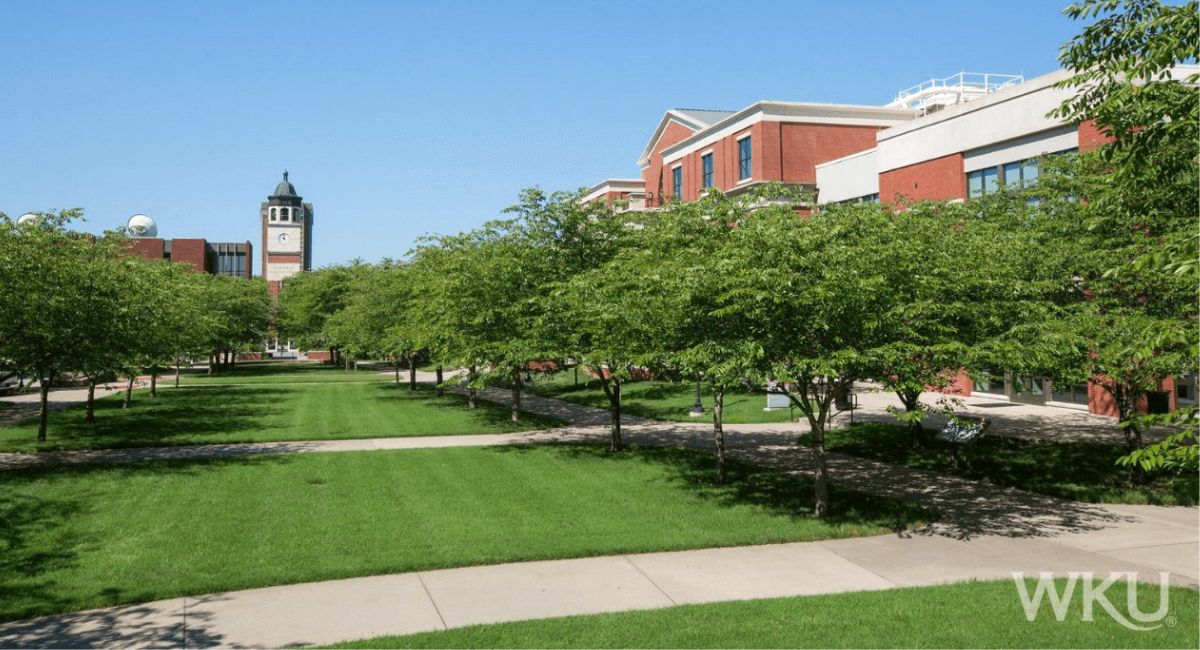
Welcome to SSS-D
TRIO Student Support Services, Disabilities is a program that serves WKU students with disabilities who may benefit from additional academic, financial and social support.
Student Support Services, Disabilities
TRIO Student Support Services, Disabilities (SSS-D) at WKU is dedicated to assisting students with documented disabilities in achieve access to academic programs and services tailored to their unique needs. The program offers personalized academic support, including tutoring and study skills workshops, while also providing financial assistance. Additionally, SSS-D promotes social support by helping students build a strong campus community through resources like counseling and peer mentoring. By addressing both academic and personal challenges, and actively engaging with the campus community, SSS-D aims to foster a supportive environment that enhances student success, retention, and overall engagement.
In order to enroll in WKU SSS-D, students must first register with the Student Accessibility Resource Center (SARC). SARC ensures that students with disabilities receive the necessary accommodations to educational programs and services. For more information on the registration process, visit the SARC website.
How Can We help?
Our goals for you as a participant are that you will persist from this semester to the next, maintain good academic standing, and graduate with a bachelor's degree. We hope that you will gain personal and professional competencies that will enable you to advance your chosen career and/or graduate education.
WKU SSS-D offers academic coaching as a personalized, one-on-one partnership to enhance academic performance through goal setting, time management, and tailored study strategies. Our coaching focuses on developing skills like organization and critical thinking, provides regular check-ins for motivation and accountability, and connects students to campus resources. This support leads to better grades, transferable skills, and greater satisfaction with the learning experience. Along with academic coaching WKU SSS-D provides a wide variety of resources and services, including:
- Tutoring
- Career Exploration
- Networking Events
- Graduate School Preparation and Exploration
- Federal Student Aid Workshops
- Scholarship Application Assistance
- Financial Aid and Financial Literary Workshop
- Economic Literacy Workshop
- Cultural Enrichment Activities and Field Trips
The WKU Student Support Services - Disability (SSS-D) office offers a variety of resources to support students' academic success. When visiting our office, students have access to computers, calculators, C-pen readers, and even a camera for various needs. We also provide snacks to keep you energized and offer a quiet study space when available. These resources, along with other items, are all part of our commitment to creating an accommodating and supportive environment for our students.
Who Do We Serve?
To be considered for the SSS-D program, applicants must meet the following criteria:
- Be a U.S. citizen or legal permanent resident
- Provide documentation of a qualifying disability
- Be admitted to or currently enrolled at Western Kentucky University (WKU)
- Demonstrate academic need, as defined by program guidelines
In alignment with the goals of the federally funded TRIO Student Support Services (SSS-D) program, which seeks to provide resources and support for access to higher education, priority will be given to applicants who meet both of the following additional criteria:
- Pell Grant Eligibility: Students who demonstrate financial need through Pell Grant qualification, reflecting limited or low-income status.
- First-Generation College Status: Students whose parents have not earned a bachelor’s degree from a four-year institution, underscoring the program’s commitment to supporting individuals from underrepresented and underserved backgrounds.
The SSS-D program is dedicated to empowering students with disabilities by addressing academic challenges, fostering independence, and providing access to opportunities for success in higher education.
How to Apply
Students can use this link to apply or on your SARC application you can click if you are interested in joining and we will reach out with information and a link to apply. There are two deadlines for applying: one in September and another at the end of January. While applications are accepted year-round, decisions will be made by our Project Director during these periods. Priority is given to first-generation students, those with limited incomes, and students transferring from other TRIO programs. After reviewing your application, we will notify you via email of our decision. If accepted, the email will include the name of your academic coach, and you will have two weeks to schedule your first meeting with them.
In order to enroll in WKU SSS-D, students must first register with the Student Accessibility Resource Center (SARC). SARC ensures that students with disabilities receive the necessary accommodations for access to educational programs and services. For more information on the registration process, visit the SARC website.
What is TRIO?
TRIO is a set of federally-funded college opportunity programs designed to support and motivate students from disadvantaged backgrounds in their pursuit of higher education. Serving over 850,000 low-income, first-generation students and students with disabilities from sixth grade through college graduation, TRIO operates more than 2,800 programs nationwide. These programs offer academic tutoring, personal counseling, mentoring, financial guidance, and other essential support to enhance educational access and retention. Congress mandates that two-thirds of TRIO participants come from families with incomes at or below 150% of the federal poverty level and where neither parent has a college degree. Currently, more than 2,954 TRIO projects serve over 840,000 low-income Americans, including students from different backgrounds, as well as students with disabilities and U.S. veterans. TRIO programs are crucial in addressing educational disparities, as they help low-income students overcome significant barriers to college access and success, which are necessary for a competitive and educated workforce. Low-income students face substantial challenges, with only 38% of high school seniors from this group enrolling in college immediately, compared to 81% from higher-income families, and those who do enroll earn bachelor's degrees at a significantly lower rate—21% versus 45% for their higher-income peers.
The TRIO programs were established as pioneering national efforts to overcome significant social and cultural barriers to education in America. Originating from President Lyndon B. Johnson's War on Poverty, TRIO began with the Educational Opportunity Act of 1964, which introduced Upward Bound as an experimental initiative. In 1965, the Higher Education Act established Talent Search, and in 1968, Special Services for Disadvantaged Students (later renamed Student Support Services) was launched. This initial "trio" of federally funded programs was designed to expand access to higher education for low-income students.
By 1998, TRIO had evolved into a critical pathway to opportunity, serving a wide range of individuals, including traditional students, displaced workers, and veterans. The original three programs had expanded to eight, with the addition of Educational Opportunity Centers and Veterans Upward Bound in 1972, the Training Program for Federal TRIO Programs in 1976, the Ronald E. McNair Post-baccalaureate Achievement Program in 1986, Upward Bound Math/Science in 1990, and the TRIO Dissemination Partnership in 1998. Today, more than 1,000 colleges, universities, community colleges, and agencies across the United States, the Caribbean, and the Pacific Islands offer TRIO Programs. These programs are funded through competitive grants, underscoring their continued importance in promoting educational access and success.
Under the initial leadership of Dr. Faye Robinson, WKU received its first TRIO grant with the funding of Student Support Services in 1980. Subsequently, WKU was awarded grants for several other TRIO projects: Educational Talent Search in 1981, TRIO Training Programs in 1982, Upward Bound in 1983, Veterans Upward Bound in 1992, and Educational Opportunity Centers in 2002. The university later secured additional funding for Educational Talent Search 2 in 2011, Educational Talent Search 3 in 2016, and Student Support Services, Disabilities in 2020.
TRIO is a group of federally funded college opportunity programs that motivate and support students from disadvantaged backgrounds in their pursuit of a college degree. TRIO programs provide academic tutoring and advising, counseling, mentoring, financial guidance, and other assistance necessary for educational access and success.
WKU’s TRIO pre-college and college programs serve over 3,500 individuals yearly in Southcentral Kentucky with a specific focus. If you’re interested in earning a college degree, check out our program links below, and/or contact us so we can help you achieve your academic and career aspirations.
To learn more about the Federal TRIO Programs, click on the link: https://www.ed.gov/about/ed-offices/ope/trio#home
TRIO High School Pre-College Programs
- Educational Talent Search: Link
- Upward Bound: Link
TRIO Adult Pre-College Programs
- Education Opportunity Centers: Link
- Veterans Upward Bound: Link
TRIO College Supporting Programs
- Student Support Services: Link
- Student Support Services, Disabilities
Over the first five years, WKU Student Support Services – Disability (SSS-D) has grown into a empowering program, despite launching during the challenges of the COVID-19 pandemic. Although funded in 2020, it was not until 2021 that our first staff, under the leadership of Director Jimmie Martin, began actively serving students. From the beginning, SSS-D has focused on providing student-centered support and helping Hilltoppers navigate college while building confidence in their journeys. Each year, we have proudly served over 100 students, offering individualized support through financial aid workshops to demystify FAFSA and scholarship processes, academic workshops to strengthen study skills, and stress-relief sessions to promote wellness and balance.
Our commitment to experiential learning has taken students beyond the classroom, attending First-Generation Conferences in Miami and Los Angeles where students connected with national networks and expanded their professional goals. SSS-D has provided graduate school preparation opportunities through cultural immersion and graduate school tours across Kentucky, visiting campuses in Nashville, Louisville, Lexington, and Frankfort to help students envision their futures. We have also encouraged cultural exploration closer to home, with trips to Mammoth Cave, the Corvette Museum, and Jackson’s Orchard, allowing students to experience the rich culture surrounding them while building community and life skills. A highlight includes our trip to Gatlinburg, where students learned practical cooking and budgeting skills in a supportive, community-building environment while exploring Appalachian culture.
Through these initiatives, SSS-D has become a cornerstone for first-generation and disabled students at WKU, empowering them to persist, graduate, and thrive. Our first five years reflect a commitment to providing opportunities, creating meaningful connections, and equipping students to claim their power as leaders, learners, and community members. We look forward to the future as we continue to grow, innovate, and advocate for our Hilltoppers’ success.
Student Support Services, Disabilities
Located in the Downing Student Union (DSU) Suite 1079, inside the Student Accessibility Resource Center (SARC) office
1906 College Heights Blvd, Bowling Green, KY 42101

Some of the links on this page may require additional software to view.


